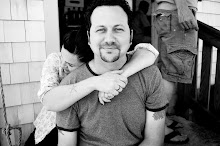I just finished reading Walker Percy's Lancelot.
I received the book as a gift about eight years ago but was scared off by the description on the back cover, which struck as slightly too close to my life, inclinations, and fears of the future at the time.: "Lancelot Andrewes Lamar, a disenchanted liberal lawyer, finds himself confined in a mental asylum with memories that don’t seem worth remembering . . ."
Still not entirely disenchanted and managing to keep myself out of the asylum, I was recently inspired to revisit the book. (I lost the paperback that I had been given but had since bought an old "discard" hard copy from the New Orleans Public Library, which seems a fitting vessel for reading Walker Percy, one of the city's finest writers.)
In the book, Lancelot, the lawyer, teases through the details of his life and the world with a critical lens as he explains how he came to burn down his home, an old River Road mansion. The truths expressed by the narrator reminded me of how frequently it is the case that people with nothing left to lose, people at the very bottom of life, are most free to express truth.
Here are a few of my favorite passages:
In New Orleans I have noticed that people are happiest when they are going to funerals, making money, taking care of the dead, or putting on masks at Mardi Gras so nobody knows who they are.
***
New Orleans! Not a bad place to spend a year in prison - except in the summer. Imagine being locked up in Birmingham or Memphis. What is it I can smell, even from here, as if the city has a soul and the soul exhaled an effluvium all its own? I can't quite name it. A certain vital decay? A lively fetor? When I think of New Orleans away from New Orleans, I think of rotting fish on the sidewalk and good times inside. A Catholic city in a sense, but that's not it. Providence, Rhode Island, is a Catholic city, but my God who would want to live in Providence, Rhode Island? It's not it, your religion, that informs this city, but rather some special local accommodation to it or relaxation from it. The city's soul I think of as neither damned nor saved but eased rather, existing in a kind of comfortable Catholic limbo somewhere between the outer circle of hell, where sexual sinners don't have it all that bad, and the inner circle of purgatory, where things are even better. Add to that a flavor of Marseilles vice leavened by Southern U.S.A. good nature. Death and sex treated unseriously and money seriously. The Whitney Bank is as solemn as the cemetery is lively. Protestants started Mardi Gras, you know. Presbyterians take siestas or play gin at the Boston Club. Jews ride on carnival floats celebrating the onset of Christ's forty-day fast.
I like you banal little cathedral in the Vieux Carre. It is set down squarely in the midst of the greatest single concentration of drunks, drugheads, whores, pimps, queers, sodomists in the hemisphere. But isn't that where cathedrals are supposed to be? It, like the city, had something else even more comforting to me, a kind of triumphant mediocrity. The most important event which occurred here in all of history was the John L. Sullivan-Jim Corbett fight. Three hundred years of history and it has never produced a single significant historical event, one single genius, or even a first-class talent - except a chess player, the world's greatest. But genius makes people nervous, including the genius, so he quit playing chess and began worrying about money like everyone else. It is altogether in keeping that the famous Battle of New Orleans was fought after the war was over and was without significance.
***
Have you ever watched onlookers at the scene of violence, an accident, a killing, a dead or dying body on the street? Their eyes shift to and fro ever so slightly, scanning, trying to take it all in. There is no end to the feast.
***
I knew a married couple once who were bored with life, disliked each other, hated their own lives, and were generally miserable - except during hurricanes. Then they sat in their house at Pass Christian, put a bottle of whiskey between them, felt a surge of happiness, were able to speak frankly and cheerfully to each other, laugh and joke, even make love. But that is crazy. Why should people be miserable in good weather and happy in bad? Surely not because they are sinners in good weather and saints in bad. True, people help each other in catastrophes. But they don't feel good because they help each other. They help each other because they feel good.
Tuesday, December 7, 2010
Subscribe to:
Post Comments (Atom)

No comments:
Post a Comment